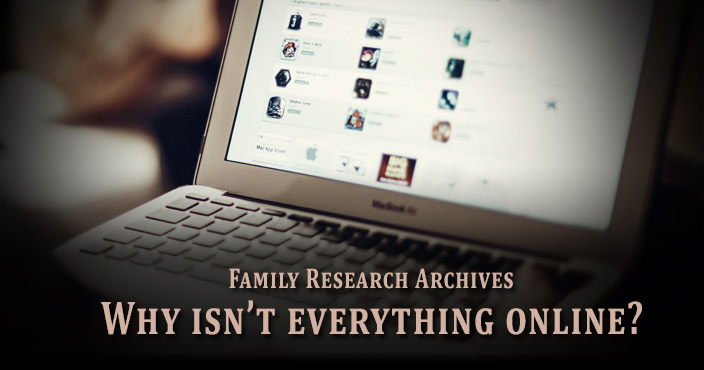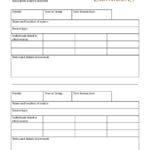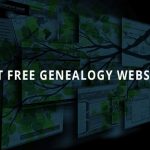We so often hear “not everything is online” And that is very true. Likely less than five percent of all of the archival documents available for genealogical research is available online. Just imagine what is still to be discovered! But it means traveling to local archives, perhaps in a different state or even a different country. And that is not always possible.
But, no matter how long we might wait for everything to come online, the reality is that it won’t. Why? Well, quite simply, it’s a matter of supply and demand: the amount of a files that are digitized and uploaded is directly proportionate to the number of people demanding it.
Everyone’s ancestors were born and died. Almost everyone’s ancestors were married. So, it is easy to find BMDs online. Most countries held a census. LOTS of people’s ancestors were in trouble with the law, entered or served in the military, or migrated to another country. So we find several online databases with this sort of information available.
Almost everyone’s ancestors attended a place of worship. So we see parish records, church records and, soon, Kirk session records. We see pension records, social security records and the like for the same reason – the record set applies to the ancestors of millions of researchers.
Many people’s ancestors had headstones. So we see websites dedicated to cataloging, transcribing photographing and making the information available online.
One of the best repositories for finding extra details of an ancestors birth, marriage, death, brush with the law, and perhaps migration can be found in newspapers. Most countries had some form of printed communication with their residents, so we see large databases available for online newspapers as well.
Not everyone’s ancestor held land, paid land tax or inheritance tax or left a will, so we see fewer of these records available. The same with hospital and medical records. There may be thousands who were employed in a specific industry, but perhaps not enough to warrant the cost of digitizing, uploading and webhosting a site where the documents can be accessed by literally a very small percentage of researchers (as compared to the millions of researchers who will use the more common records like BMDs).
So, how do you access the records that aren’t digitized but that quite likely have very detailed, very important information on your ancestor? Well, if travel is out of the question, contact the society responsible for professional genealogists in the country where your ancestors lived, contact a professional genealogist in North America that has an expertise in the records of the country where your ancestor lived, or send a query to the local genealogy society where your ancestor resided.
Note that a professional genealogist won’t stop with just one record set or one archival repository. Their research will be far more exhaustive, and ultimately more inclusive of information regarding your ancestor. To start, you can do a search through the directory for the APG (Association of Professional Genealogists) at https://www.apgen.org/directory/index.html
Scottish born, Canadian raised, Christine had the best of both worlds, growing up immersed in Scottish culture. Realizing that others of the Scots diaspora were not as fortunate, she started her business, Genealogy Tours of Scotland to allow others researching their Scottish roots the opportunity to return to the land of their ancestors, conduct family history research and deepen their sense of belonging to their ancestral kin.



